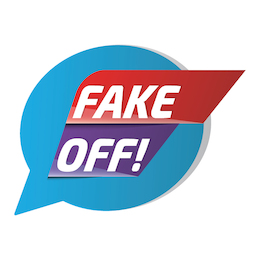Toolbox — For Training and Youth Work
All new tools in your inbox: Be the first to know about new tools for learning with our e-mail notifications.
Exercise, Info session
Toolkit for Fostering Adolescents’ Knowledge and Empowerment in Outsmarting Fake Facts
The toolkit, including a didactic concept, training material and an app aims at fostering young people's internet literacy, creating awareness of intentional misinformation and enabling them to identify and avoid “fake news”.
Aims of the tool
The toolkit aims at
- supporting the individual learning process of young people in the context of digital literacy
- increasing the participation of young people in the critical debate of news and internet content
- developing young people’s capacity to evaluate published information and act accordingly
- allowing a systematic approach to digital literacy for young people and professionals working with them
Description of the tool
“Fake news” and “fake facts” became not only fashionable keywords but actual threats to democratic values. Especially young people, who spend increasing amounts of time on the Internet and with social media, are targeted by fake news for propaganda and profit reasons. Therefore, they need empowerment and knowledge to outsmart the ever-present flow of intentional misinformation.
The developed toolkit aims at fostering young people's internet literacy, creating awareness of intentional misinformation and at enabling young people to identify “fake news” and to avoid them. Thus, a didactic concept and learning material for teachers, trainers and youth workers as well as an App for young people was developed and established. The didactic concept and the training material create a basis to foster media literacy in youth work, youth information centers and other educational settings. Moreover, the App provides a game-based approach to support young people in recognising and dealing with fake news. The app is a great tool to support the teaching of digital literacy.
The main learning outcomes of the toolkit are:
- more responsible use of (online) media by young people
- public discourse about the accuracy and quality of news
- a general democratization process through making young people less susceptible to intentional misinformation and propaganda
- empowerment of young people with the skills of critical thinking and media literacy
- better informed younger generation and stronger fundament for Democracy
The developed learning material is available in 5 different languages (EN, DE, POR, ESP, IT).
The App is available free of charge in the Google Play Store (https://play.google.com/store/apps/details?id=org.fakeoff) and in the Apple App Store (https://apps.apple.com/pt/app/project-fake-off/id1496765847?l=en) free of charge.
More information about the project and the resources in different languages can be found here: https://www.fake-off.eu/.
Disclaimer
SALTO cannot be held responsible for the inappropriate use of these training tools. Always adapt training tools to your aims, context, target group and to your own skills! These tools have been used in a variety of formats and situations. Please notify SALTO should you know about the origin of or copyright on this tool.
Tool overview

http://toolbox.salto-youth.net/2889
This tool is for
The main target group of the toolkit are teachers, trainers, youth workers and young people.
and addresses
Personal Development, Peer education
Materials needed:
Didactic concept, training material and the app
Behind the tool
The tool was created by
Unknown.
(If you can claim authorship of this tool, please contact !)
The tool was created in the context of
The toolkit was developed in course of the ERASMUS+ project “Fake OFF” (Fostering Adolescents’ Knowledge and Empowerment in Outsmarting Fake Facts), conducted by bit schulungscenter. More information about the project: https://www.fake-off.eu/.
The tool was published to the Toolbox by
Stefanie Gugganig (on 28 September 2020)
and last modified
5 June 2020
Comments
No comments have been posted yet.
If you want to comment on this tool, you need to be signed in with your MySALTO account. Sign in now